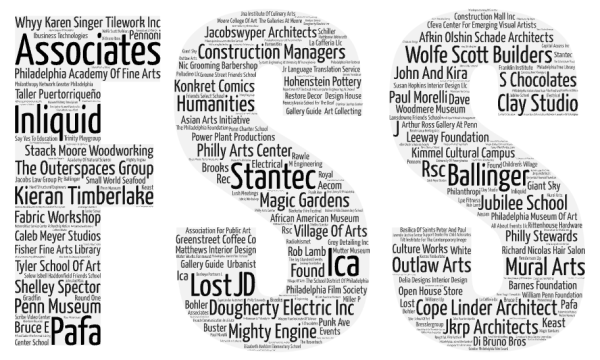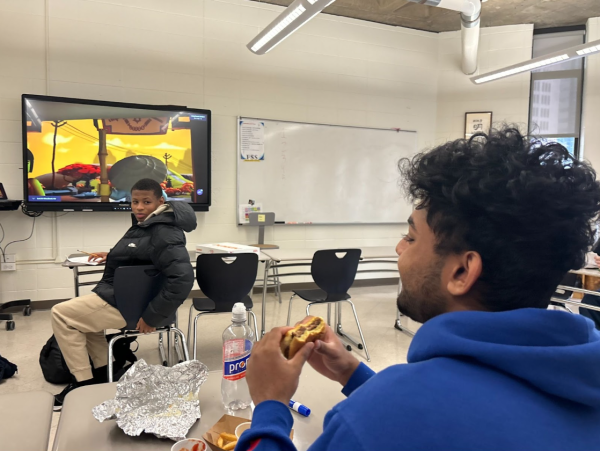Opinion: It’s Time for Devotions to Go
In a typical Upper School devotions at Friends Select during hybrid-learning, the first page of Zoom squares is filled with active listeners, primarily teachers. Similarly, the second page displays more faces paying direct attention to the speaker. However, once an attendee ventures to further pages, they are met with several screenfulls of nothing but gray squares. Unfortunately, it appears that most Friends Select Upper School students completely tune out during devotions or are uncomfortable turning their cameras on. Until the Upper School returns to fully in-person learning, removing the devotions period from the weekly schedule would have a number of health and productivity benefits.
According to research published by BBC, “Zoom Fatigue” is an exhausting and disruptive consequence of the daily onslaught of online meetings. Because video chat conversations limit participants’ abilities to read non-verbal cues, listeners require more energy to properly focus on Zoom. Additionally, brief periods of silence that are perfectly natural in face-to-face conversations become stressful and intimidating over video conferencing. When individuals participate in numerous Zooms throughout the day, these tiring factors combine into a condition that jeopardizes productivity and mental health. Each expert interviewed by BBC shared that the most effective combatant of Zoom Fatigue is a reduced number of daily Zoom sessions.
A Harvard Business Review article from May tied Zoom Fatigue to the “Ringelmann Effect,” a longstanding scientific theory that people are more likely to distract themselves in larger group settings. Essentially, the more people there are in a Zoom meeting, the more likely students are to tune out from the central message. Consequently, the lack of focus in devotions is likely more pronounced than in normal classes. If the purpose of devotions is to report essential information, broadcasting news through a Zoom with over 200 people is not the most effective method of communication.
Devotions periods are by far the largest Zoom meetings that Upper School students and teachers attend during the school week. The community time block on Tuesday mornings could be used more productively as a smaller meeting like an extra office hours period, an additional advisory, club or affinity group time, or even just an hour off. In a jam-packed day of constant zoom meetings, community members can use as much time away from the computer as possible.
Now that Social Justice Week track groups have finished sharing their work from January, there is no clear reason to continue holding a weekly devotions meeting via Zoom. Almost all informational items shared in devotions can be communicated through an email sent to students on Tuesday mornings, or perhaps even more frequently. If the verbal communication of a piece of news is essential, advisors can communicate it directly to students during the weekly advisory period.
Although devotion Zooms are partially intended to retain a sense of community during hybrid-learning, they can have the opposite effect. Due to the aforementioned Ringelmann Effect, at-home students space out and counterproductively contribute to the intimidating size of the Zoom call, and their separation from students sitting together at school only reinforces the feeling of isolation. Considering that a sizable portion of the at-home student population is not even paying attention to the meeting, devotions does not add any value to Friends Select’s community spirit.
Jonas Gruber ‘22 is an advocate for the removal of devotions during hybrid-learning. “Since we only meet with our classes twice a week, that period could be better used as office hours,” he says. “It just seems like a waste of an hour when people need all the face time they can get with their teachers.”
Conversely, Asa Johnson ‘22 supports virtual devotions. “Considering a lot of people don’t read all of their emails, devotions is a main source of announcements for students,” he says. However, given that most students keep their cameras off during devotions, it is unlikely they are paying close attention during announcements. Asa adds that “[devotions] gives clubs and groups a space to share any information, as we just saw with Social Justice Week.” This is true, but since the beginning of the COVID-19 pandemic, clubs and student groups have effectively used social media, email, and other methods to engage with the larger school community.
Although devotions has symbolic value as a period in which all students and faculty convene in one space, it contributes to Zoom Fatigue and relays important information in a relatively ineffective way. Converting the period to office hours, advisory, a weekly assembly, or a free period would use time more productively and save students and faculty from the stress of a massive Zoom meeting. For now, it’s time for devotions to go.

Peter Ryan is a senior at Friends Select School. He currently serves as President of Student Government, Co-Clerk of QUAKE, and founding leader of Cricket...









joebiden • Mar 19, 2021 at 12:17 PM
thanks u for ur service mr present !!
Donald J. Trump • Mar 19, 2021 at 12:15 PM
Although Mr. Biden and I differ our opinions on most subjects, I have to say I concur with him on this issue specifically related to the devotions at Friends Select School in Philadelphia.
joebiden • Mar 19, 2021 at 11:50 AM
i dont like devotions and my name is joe biden the 46 preisnt of the usa